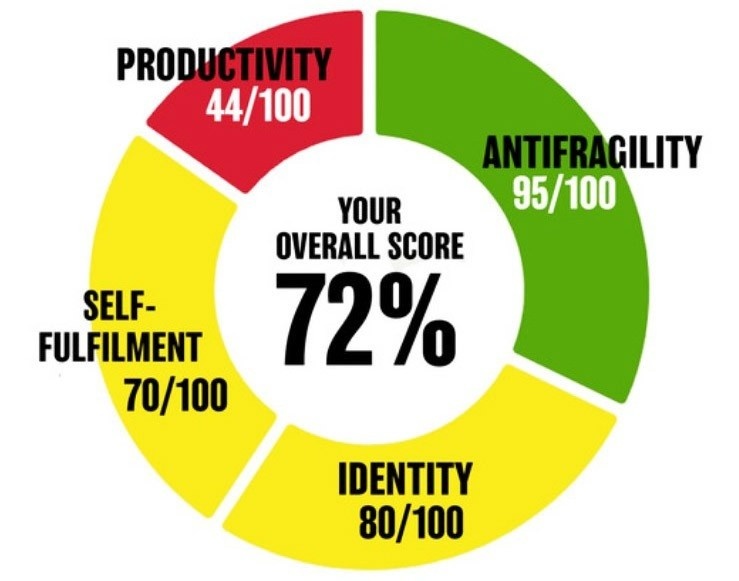SUMMARY
- Listen With Curiosity – People want to feel that they’re being listened to. It commands respect from the others because you suddenly are and appear more engaged.
- Do What You Say! – You need to be reliable. If you’re not reliable, people will not respect you.
- Say How You Feel – If you go about a conversation or a relationship and you’re not revealing your true feelings, but then those feelings become revealed later through other means people tend to not respect you.
- Treat People Fairly and Respectfully – They need to feel that justice is being made available for everyone in the relationship.
- Offer to Help Others Achieve Their Goals – If you do that, people will immediately feel a greater bond to you and increase the likelihood of them wanting to work with you.
- Look After the Human Side of Someone and Not Just the Work Side – Remind yourself that they’re not just there to work or to collaborate with you.
- Demonstrate your Vulnerability – When you admit to others that you’ve made a mistake, it makes you more approachable, it makes you more accessible and it makes it more likely that someone is going to respect you because you’re like them in that situation.
- Deliver your Best – If you’re delivering your best and people can feel that, they are more likely to respect you. Giving your best commands respect from anyone around.
- Demonstrate That You are Constantly Seeking to Improve – Asking for feedback, demonstrating that you’re looking to continuously improve immediately commands respect from others.
TRANSCRIPT
Lots of people get frustrated for not having the respect that they think they deserve. But by the end of today’s message, you’ll have nine ways to get people to respect you immediately.
Hi, my name is Eric Partaker and as an award-winning entrepreneur and having been recognized as the CEO of the year, I know a few things about what it takes to get people to respect you. So let’s dive straight into it, and I’m going to go into the first one, which is you need to listen with curiosity. What do I mean by that? I mean, a lot of times when people listen, they’re not really listening. They are listening and letting the words kind of go in their ears and out the other, but they’re not really taking it in. But when you listen with curiosity, it commands respect from the other person because you suddenly are and appear more engaged with them.
And what do I mean by listening with curiosity? Well, if somebody were to say something to you, such as what they do for a living, you can kind of move on to the next thing or you can stop for a moment and go, wow, that’s really interesting. So tell me, why did you pick that as a profession? Why did you pick that as a career? Or if somebody says that they went on a trip recently to China or to Japan or to Brazil, wherever in the world, you could stop and ask, what was it about that country that made you want to go there? What did you find most interesting on your trip there? What did you find most inspiring? If there was one thing that you saw that they did differently there that you wish we were doing here, what would that be? These are examples of curiosity based questions. And why are these important from a respect point of view? Because people want to feel that they’re being listened to.
But when you listen in this way with a curiosity based approach where you’re asking the person to kind of describe what it is that drives them, what’s deep inside them, to almost reveal their DNA, it inspires respect from that person because they immediately feel that you’re connecting more closely to them. And they think that you, very rightfully with these types of questions, that you care more about them. And when people feel cared for, they are more willing to respect you.
Number two, if you want to command respect, do what you say. You need to be reliable. If you’re not reliable, people will not respect you. This is one of the absolute hallmarks of being a great leader. For example, one of the things that I had to work on a lot, personally myself, is resisting that temptation to say you’re going to go ahead and do something. If you can’t do something within a certain time, you’re better off not even saying that you’ll do it. But if you have made a promise and you said, I’m going to do this for you, do what you say, be reliable and it commands respect. Because people know that they can trust you and depend upon you.
Number three thing that you can do to command immediately is to say what you mean. If you go about a conversation or a relationship and you’re not really revealing your true feelings, but then those feelings become revealed later through another person or through yourself but far too long in the process than it should have been, people tend to not respect you. Then they want to know upfront that you are saying how you feel. They don’t want hidden agendas. People don’t want to have passive aggressive behavior where somebody says one thing, but then just does another thing. So you need to make sure that you say what you mean that you say how you feel. By saying how you feel you’re not doing anything but speaking the truth because nobody can deny your feelings. They are true to you. The feelings might not be the right way to think about something, or they might not necessarily be the wrong way to think about something, but they are true and they need to be expressed. So say what you mean in it will command respect.
Number four, we need to treat people fairly and respectfully. If you don’t treat people in a way that they think is fair, if you treat them in an underhanded or offhand way, they’re going to have no chance to respect you. They need to feel that justice is being made available for everyone in the relationship. And that there’d be given the same respect that anybody naturally would assume or want to have in a relationship. So make sure that you’re treating people fairly and respectfully if you expect to be respected in return.
Number five way that you can get people to respect you immediately is to offer to help them to achieve their goals. If you do that, people immediately feel more bonded to you and they want to work with you. Who doesn’t want to have someone else help them achieve what’s important to them? And also by doing this, you’re demonstrating something super important, which is reciprocity. So when you do something for someone else, they’re going to be more inclined to want to do something for you. So help someone achieve their goals, ask what can I do to help you in your mission, in your cause? And you will generate a lot of respect back towards you.
Number six, remember to look after the human side of someone and not just the work side. If you want to command or receive respect from another person, make sure that you’re connecting to the fact that they’re not just there to work or collaborate with you. That they’ll have their up days, their down days. That things may not be going well on the health front for them or things may not be going well on the home front or the relationship front. And if you see that something is not going well, inquire, ask if there’s anything that you can do to support them. We’re all human beings at the end of the day, we all want to feel supported, looked after. And if you’re doing that, and if you’re paying respect to the human side of someone and not just the work side, they’re going to be more likely to show you respect in return.
Number seven, if you want to get respect from somebody immediately demonstrate your vulnerability. This is especially important for people that are maybe looking up to you or reporting into you. Nobody wants to work with somebody who’s infallible and incapable of failure, because that doesn’t exist, that’s not real in the world. And when you go out there and you go ahead and you admit to others that you’ve made a mistake on something, it makes you more approachable, it makes you more accessible and it makes it more likely that the person is going to genuinely respect you because you’re like them in that situation. Because again, nobody’s perfect. And if they feel that they’re more able to relate to you, they will be more likely to respect you. And being vulnerable is a quick way to create that level of closeness and that respect that you’re looking for.
Number eight, if you want to get the respect that you think you deserve, you need to deliver your best. If you’re delivering your best and people can feel that, and experience that, see the results of it potentially benefit themselves, they are way more likely to respect you, your mission, your cause, whatever it is that you might be working on. Because they know, they can see that you’re giving your best. And giving your best just simply commands respect from anyone around.
And the number nine way to get people to respect you immediately is to demonstrate that you are constantly seeking to improve. Two powerful questions that you can use here to demonstrate that you’re seeking powerfully to improve is to ask people how can I improve or to ask people, what would you do to improve upon this. Asking for that feedback, demonstrating that you’re looking to continuously improve immediately commands respect from others.
So I hope you’ve enjoyed the nine battle-tested ways that I’ve used with great success to get the respect that I need to not only command and complete various missions and tasks and projects, but also to help others complete theirs as well. So I hope you’ve enjoyed that and if you head over to my website at ericpartaker.com, you can also subscribe to my weekly Peak Performance Insights newsletter.




